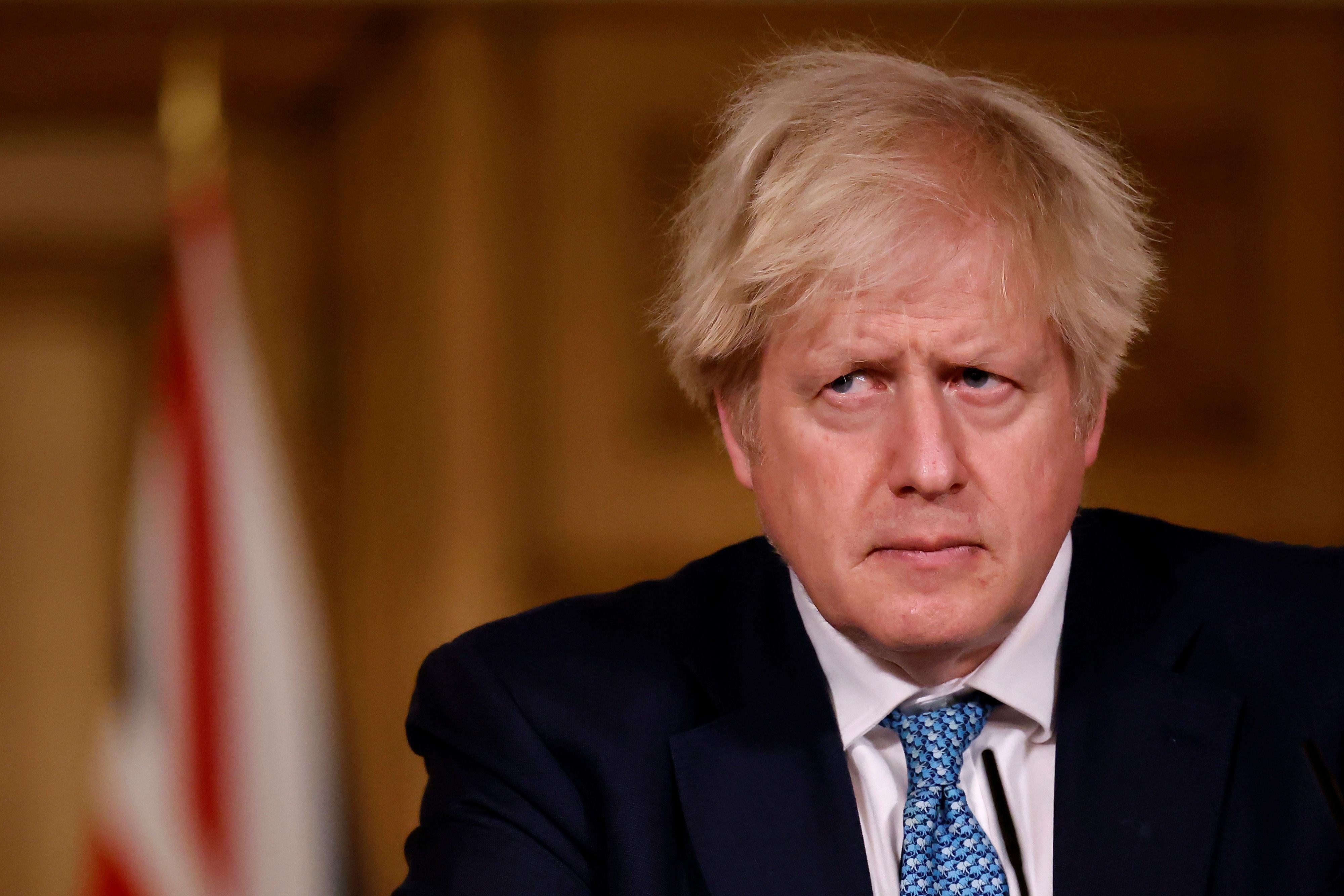Why can’t Boris Johnson stop overpromising and underdelivering?
Remember the PM’s promise to ‘turn the tide’ of coronavirus in 12 weeks? That was, well, nearly 44 weeks ago and, as Sean O’Grady explains, he appears not to have learnt his lesson


No matter how hard he might try, how disciplined and grim-visaged he is determined to be, the prime minister simply cannot help himself: he always overpromises and, putting it charitably, sometimes underdelivers. It has been true of Brexit, to widespread frustration, and it has been even more acutely true of the response to Covid. The boy can’t help it.
Thus, even as he attempts to prepare the country for a longer-than-expected lockdown and closure of schools, he slips in the tantalising but vague prospect of some easing of restrictions in February – strictly speaking, not much more than a week away. The target for vaccinating the most vulnerable in society is 15 February, which for a change does seem achievable, but even so, the inoculation will take a few weeks to start working.
Not for the first time, the prime minister is perhaps being a little too optimistic. It is coming up to a year since he declared that the virus would be “sent packing” in 12 weeks, once the famous sombrero had been flattened. In the summer, the “world beating” Serco test and trace system was supposed to “help us very greatly” to defeat the disease. In July, a “significant return to normality by November at the earliest” was envisaged. This was indeed followed by a succession of relaxations, only for them to be reversed – as it happened, in November. “Cancelling Christmas” was then ruled out as “inhuman”, only to be ruled back in a few days before the “holidays” started. Where once he ridiculed bringing in a second and then a third national lockdown, he was eventually forced to do so.
The prime minister usually says this is all because it’s a fast-moving story, because the science changes and that he wants to be “realistic”. Yet that is the puzzling thing: if he knows that the virus is unpredictable and the science dynamic, why make over-optimistic promises that lead to disappointment and discredit the whole message the authorities are trying to send out?
The first rule of spin – applicable in any workplace or family setting – is to underpromise and overachieve. Johnson seems to think himself capable of reversing that eternal truth, or at least ignoring it. As mayor of London, then party leader and now premier, he believes in “boosterism”, cheering people up, making them “believe in Britain”. It is devout, almost magical, as if he can make Brexit work and raise the rate of gross domestic capital formation just by telling people that Brexit is full of “fantastic” opportunities. It is a milder version of the “positive thinking” derangement that led to much trouble for Donald Trump (and the rest of us). In Trump’s case, it derived from an over-literal understanding of The Power of Positive Thinking by Norman Vincent Peale, a bestseller that captivated Trump and his father before him, as did its author; Peale officiated at Donald Trump's first two marriages.
In Johnson’s case, he seems to be his own high priest of “cakeism”, as he terms it. Boris Johnson – the swami of boosterism, the patron saint of looking on the bright side, the yogi of “get it done” – seems to genuinely believe that tough choices are there to be avoided or, better still, abolished. Northern Ireland can simultaneously be outside and inside the EU customs area; Dominic Cummings is indispensable until he isn’t; schools can be “safe” but also vectors for Covid. Johnson is also motivated by a politician’s natural desire to please (or fool) all of the people all of the time. It would also account for his casual attitude to policy U-turns. The approach has generally served him well, but he is being warned about it by more sober-sided types in his own party, and Keir Starmer has used it as a potent line of attack. Cakeism may yet prove to be just another dangerous cult.

Join our commenting forum
Join thought-provoking conversations, follow other Independent readers and see their replies
Comments